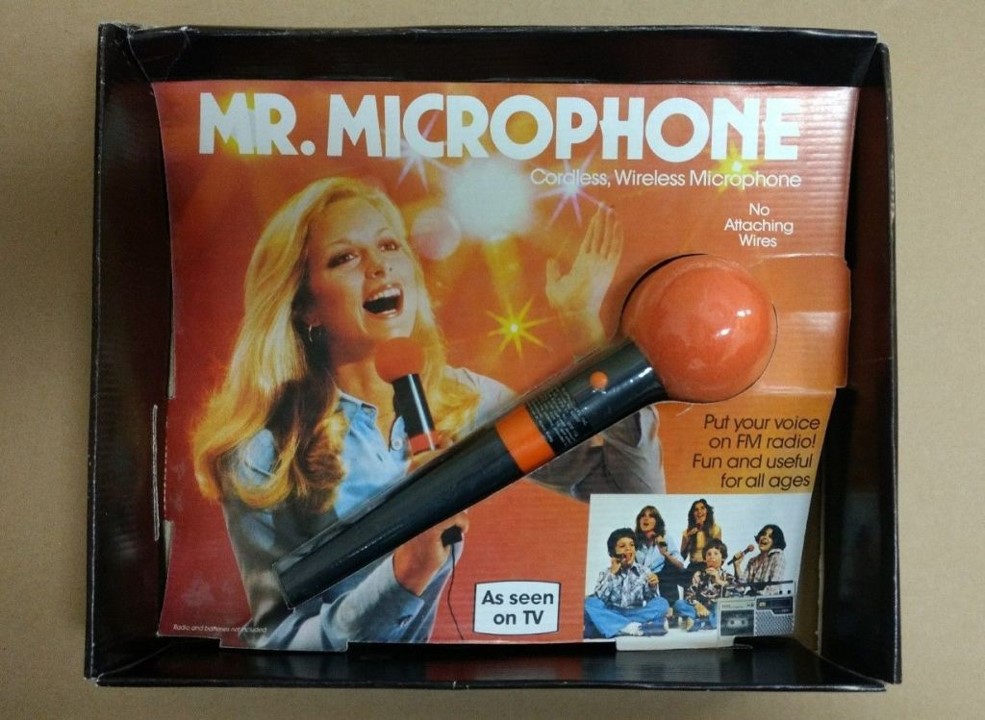
If you’re a member of the radio broadcasting air talent community, you’ve heard today’s blog post title before. Maybe thousands of times.
It’s one of the first thing “civilians” blurt out (after “You don’t look the way you sound” or “I pictured you’d be taller”) upon meeting professionals who earn their living talking into a mic.
My personal “if I had a dollar every time I’ve heard….” comment is, “You know, I almost went into radio” or “I actually did some radio back in school.” Somehow, common sense prevailed, and these people ended up selling window sash treatments or going to law school.
At first, the tendency is to bring perspective to these naive comments. There’s a lot more to the job than playing great music and answering phones. Sure, you generally don’t pay to go to concerts (you may have forgotten how much they cost), but there’s a lot more to this job than meets the eye. Or the ear.
There’s a lot more to excelling in radio than sitting in a chair, opening a mic, and gabbing away. It’s a craft that takes years to master, and sadly, many who devote their careers to it don’t have the skills or the talent to break through. Most who have succeeded at careers on the air or behind the mic have sacrificed much along the way – including families, friends, marriages, and money. All those housing transactions as personalities jump from market to market end up being rivers of red ink.
Like so many things in life, being on the radio is much harder than it looks.
But not if you listen to Amazon and get sucked into thinking you can actually become a DJ on their Amp Radio platform. In this blog, I’ve talked about Amazon’s master plan to break down the barriers, opening up radio to the hoi polloi – common folk who have always wanted to be on the radio. (See “Amazon Music’s Next Act? DJs”)
As the slogan blares on the video below, “You own the airwaves.” Take that, FCC.
It’s an illusion, it’s a come-on, and for most people who try their hand (or their voice) at finally getting their own radio show, it will be a huge disappointment.
That’s because there’s more to being on the radio than playing that under-exposed Pretenders song you stumbled on years ago, and opening up the mic and telling stories about Chrissie Hynde.
In much the same way podcasting has spawned millions of dispirited show hosts whose “shows” weren’t unable to break the 100 download barrier, Amp Radio will almost certainly leave disgruntled, disheartened would-be “broadcasters” who cannot believe no one wants to listen to their shows.
There’s a reason why “podfade” has become a common term to describe the discontinuation of a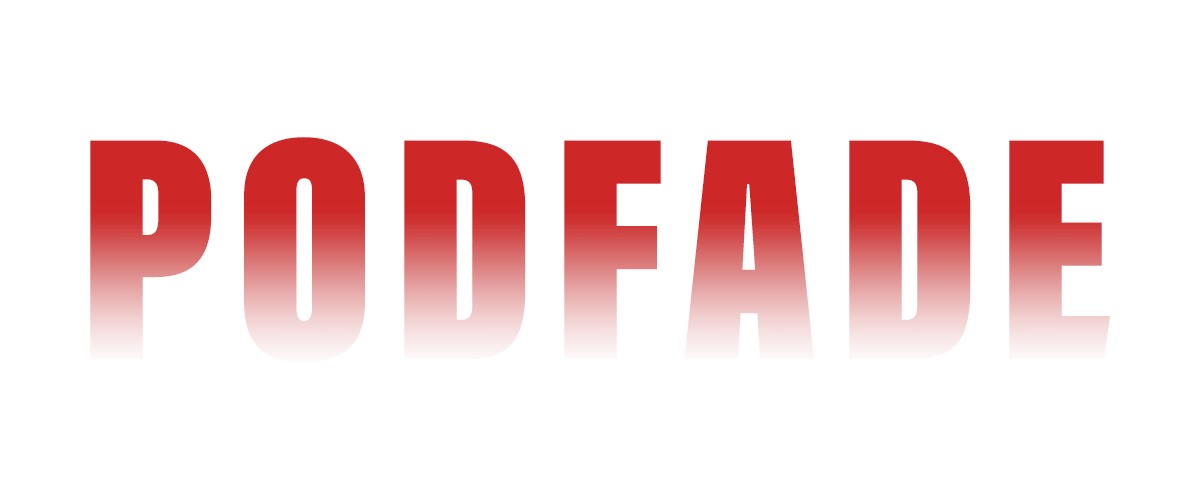 podcast, often after just a handful of episodes. When the realization sets in that audience levels will be smaller, and sponsorship opportunities aren’t going to materialize, many throw in the towel.
podcast, often after just a handful of episodes. When the realization sets in that audience levels will be smaller, and sponsorship opportunities aren’t going to materialize, many throw in the towel.
You’ve no doubt seen Steve Goldstein and James Cridland’s research revealing how many thousands of podcasts have gone silent as their hosts and producers no longer can rationalize spending resources on them.
Chances are, Amp Radio will soon be littered with thousands of DJs whose radio shows faded to black due to disinterest and the inability to aggregate audiences. Those of us who work in “real” radio know just how difficult it is to grow listeners, even when you have a full FM signal in a marketplace.
Amazon is making having a radio show look like FUN! And of course, radio is fun. Our AQ4 study lists the key reason why air talent enjoy their field. Having fun and entertaining others are always at the top of the list:
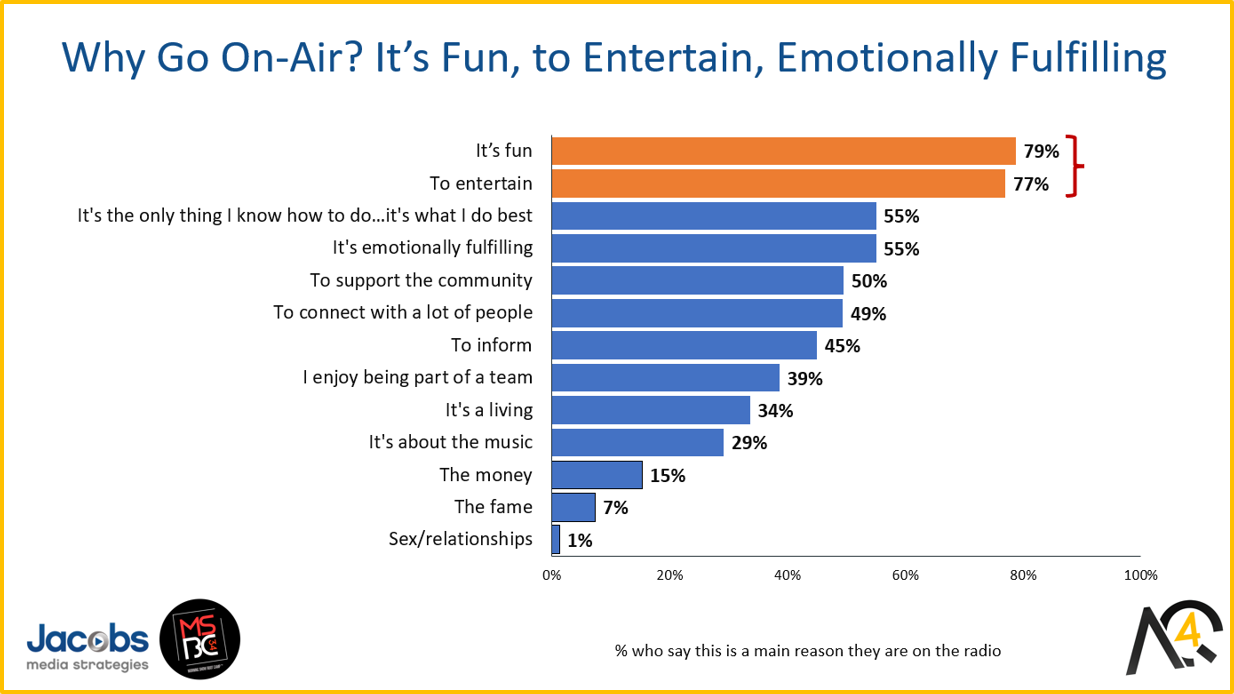
Not surprisingly, Amazon is leaning into that very same reasoning with Amp Radio. You have to believe that many, many people must have considered going into radio at one point or another or imagined what it would be like to have their own show.
And thanks to this platform, anyone can become a broadcaster:
Of course what’s being left out is the idea that being on the radio or hosting a podcast is truly an art form. The notion that “anyone can do it” is what platforms like Amp are all about
Podcasting was the first medium of the masses, with a low barrier to entry – just a mic and an idea was all you needed.
But as I learned at my very first Podcast Movement in Chicago in 2016, many of these fledgling stars were delusional about what constituted a good show that would attract listeners.
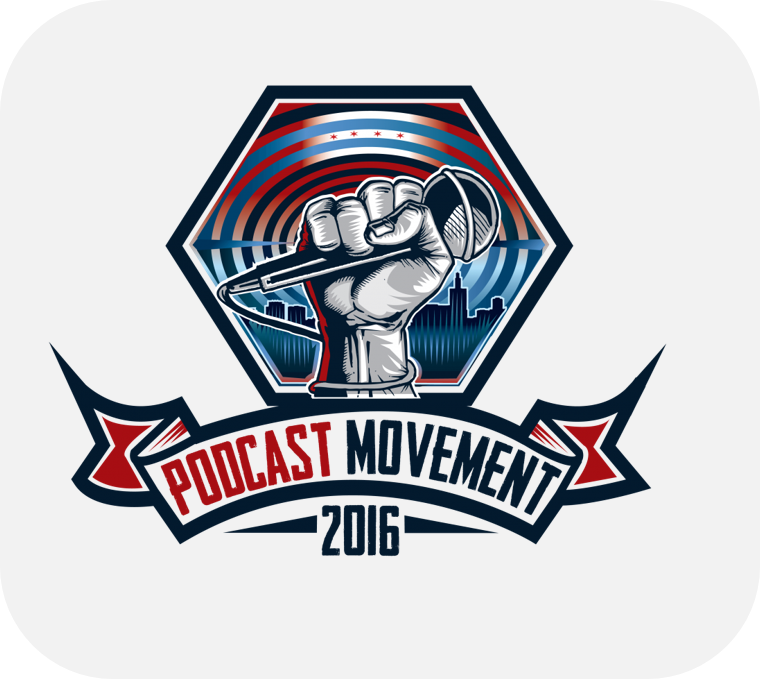 Back then, the “conventional wisdom” (and I use that term loosely) was that podcasts should leisurely run 45 minutes, an hour, or even more. Today, many competitive podcasters know 15-20 minutes is a far more realistic length – about the time it takes to whip up dinner, walk the dog, smoke a cigar on the front porch, or jump on the treadmill.
Back then, the “conventional wisdom” (and I use that term loosely) was that podcasts should leisurely run 45 minutes, an hour, or even more. Today, many competitive podcasters know 15-20 minutes is a far more realistic length – about the time it takes to whip up dinner, walk the dog, smoke a cigar on the front porch, or jump on the treadmill.
I was told that quality was largely irrelevant; that the charm of podcasts was they were edgy, even raw. To be slick and well-produced – like radio – was a trap that would detract from a podcast’s charm. Of course, even the lamest podcasters now know strong audio matters, and now most have invested in increasingly better equipment and technology.
And then there’s the casual nature of podcasts. Back then, many hosts spent their first several minutes “warming up,” chewing the fat, and reviewing weekend activities. The thinking was their “fans” enjoyed hearing these insights and banter. But of course the only people who can truly pull that off are Howard and Robin. No one has the patience or the time for rambling conversations that go nowhere.
This is likely how in the short run, Amp Radio will end up. It may attract ex-pats like Zach Sang or Kat Corbett, but they’ll be the exceptions. Most everyone else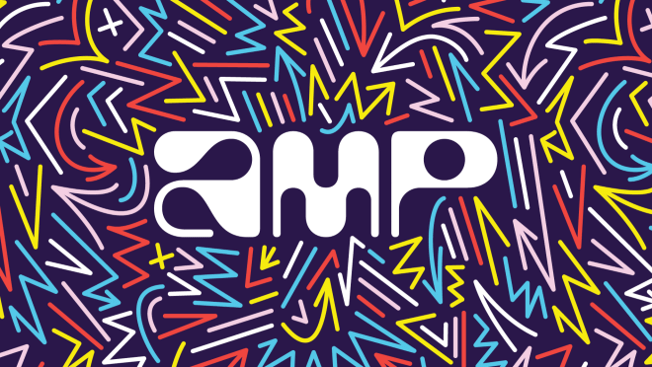 will be playing “Ronnie (and (Rhonda) Radio,” pretending they’re doing a show for an audience that is at best double-digits in size.
will be playing “Ronnie (and (Rhonda) Radio,” pretending they’re doing a show for an audience that is at best double-digits in size.
While many got into podcasting as a way of expressing themselves and their interests, many others entered the fray to make their fortunes. We’ve seen how those dreams have been dashed.
Not surprisingly, Amazon is offering up some form of a “rev share,” still somewhat short on the details. To make being a DJ more attractive and to encourage participation, Amp Radio is offering to pay fledgling DJs. They’ve established the Amp Creator Fund. To qualify for the “rewards,” DJs must be able to check off all these boxes:
- Host a minimum of one live show a month
- Adhere to Amp’s terms of service, community and music guidelines
- Be at least 18; those in the 13-18 range will need parental permission
- Be located in the U.S.
- Have a U.S. bank account
- Have an email address associated with an Amazon account
- Not be an employee/contractor with Amp (but apparently not Amazon)
I should also note that DJs must have an iPhone as the Amp Radio app is only available on iOS, at least for now.
What’s the “starting salary?” According to Ashley King in a Digital Music News story, Amazon will compensate “qualifying creators” based on their monthly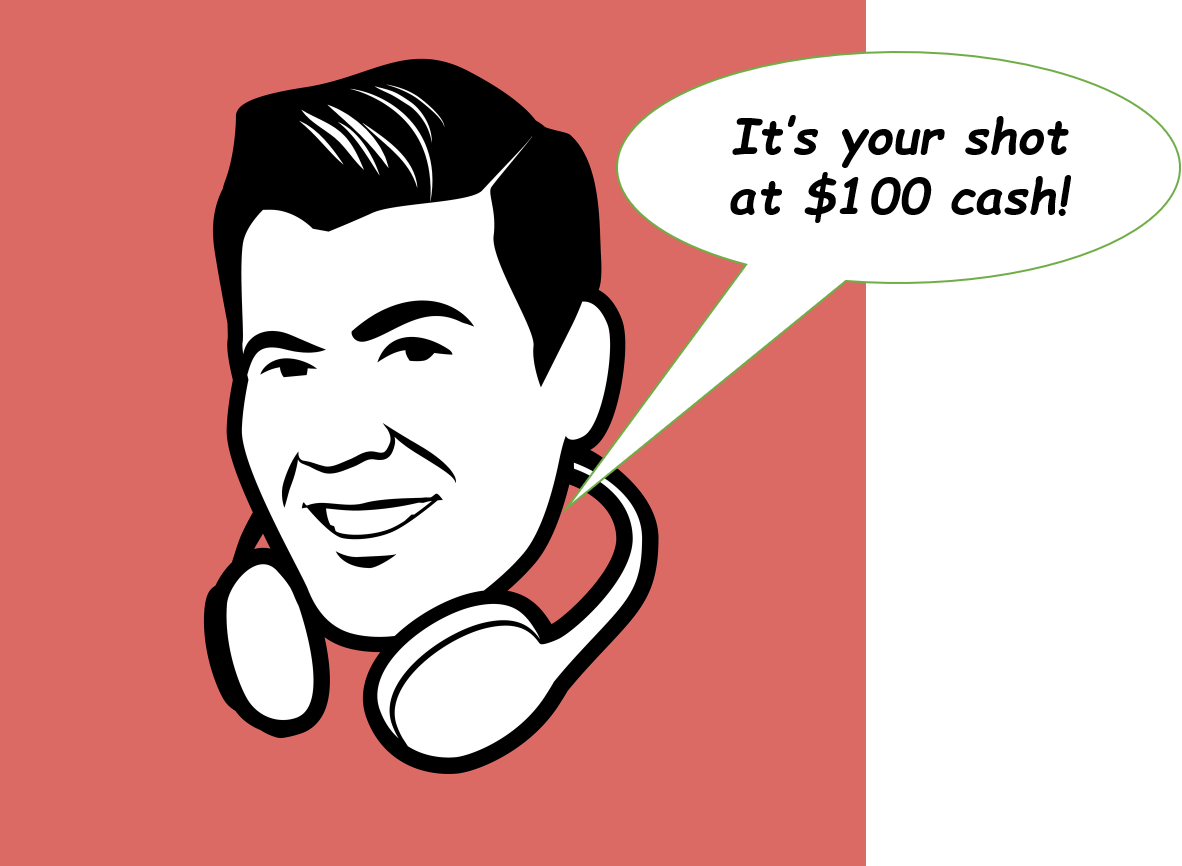 performance. How is this calculated? Shows are “assessed based on listener engagement and show performance metrics like popularity with new and recurring listeners.” Amazon reserves the right to adjust these metrics over time.
performance. How is this calculated? Shows are “assessed based on listener engagement and show performance metrics like popularity with new and recurring listeners.” Amazon reserves the right to adjust these metrics over time.
Techcrunch says Amazon has budgeted “million of dollars” in compensation for the coming armadas of DJs.
Beyond the vague “performance” criteria, there is apparently no information about the specifics of these rewards. As King notes, Amp Radio has its sights set on being competitive with Spotify Live, Clubhouse, and similar platforms.
So, we know nothing specific about compensation, although Amp Radio DJs may likely reveal their earnings on social media, either to brag or bitch. At least, there won’t be any RIFs at Amazon, except of DJs violate those aforementioned “community and music guidelines.”
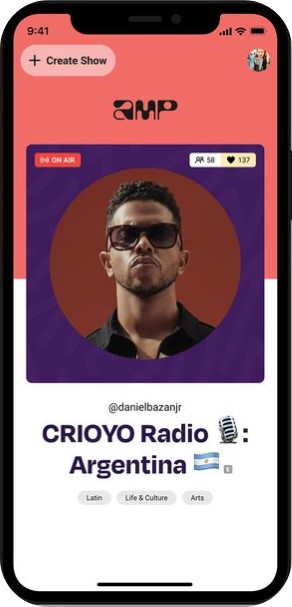 Until we get more detail on what kind of dollars we’re talking about here, we won’t know if broadcast radio will be in a position to lure the best Amp Radio performers over to the commercial airwaves. Or contrarily, will Amp Radio be able to entice over-the-air broadcasters to join their ranks, a method SiriusXM has perfected.
Until we get more detail on what kind of dollars we’re talking about here, we won’t know if broadcast radio will be in a position to lure the best Amp Radio performers over to the commercial airwaves. Or contrarily, will Amp Radio be able to entice over-the-air broadcasters to join their ranks, a method SiriusXM has perfected.
In that same AQ4 study, roughly 10% of our sample were “on the beach” – and their attitudes toward broadcast radio had not surprisingly soured. You have to wonder if outside of the true amateurs excited about being “on the radio,” all those out-of-work RIFed DJs, shows, and hosts might not want to give Amp Radio a spin.
Does Amp Radio amplify the role that DJs actually play by making it easy for anyone to play radio? Or does it flood the market with bad “radio,” in much the same way podcasting was democratized (until the money people moved in)?
Who knows? At some point, Amazon might bonus its airstaff with free T-shirts and McDonald’s coupons.
Will Amp Radio do remotes?
As they say, stay tuned.
Thanks to Larry Rosin.
- What Is It With Female Robot DJs? - April 30, 2025
- Why “Dance With Those Who Brung You” Should Be Radio’s Operating Philosophy In 2025 - April 29, 2025
- The Exponential Value of Nurturing Radio Superfans - April 28, 2025




Thanks for this excellent discussion, Fred. My own time behind the mic over the years (on the left side of the dial) convinced me that the industry’s calling those behind the mic “talent” is not sarcastic. Doing the job well requires a multitude of skills that not everyone has, enthusiasm and music knowledge notwithstanding.
Your bar chart of why do it reminds me of another profession that would-be DJs might ponder. The final decade of my actual day job had me in frequent company with another crew who spend a lot of time on the mic: air traffic controllers. I suspect that, other than changing the second bar to “To facilitate aviation safety,” survey results would resemble what you found for DJs. ATC specialists (that’s their official job title) combine many skills if they’re successful at it–which, if lacking, the aspiring controller never makes it out of the Academy in Oklahoma City, for obvious reasons. This deters most people from pursuing that line of work.
Good air talent deserve the same respect. Amp Radio could become a useful filter for new talent, so it’s worth watching. No one should underestimate the challenge, though.
So well-said, John. From the outside, it appears to be a really fun job that is easy. So I guess that makes many of these amateur wannabes half right? Thanks for engaging on this one.
Beauty !
Good read and, frankly, a very good and enticing spot for Amp. Sure, lots of people will try, get bored and–especially when they see no payoff–drop out, while others find a fun hobby that just may provide some nice side income. But there will likely also be a few that discover something radio’s been needing to learn: That one, you DO have to be good at what you do (which radio has known all along), and two, that that’s no longer enough (which radio is still learning). You also have to know how to market and network and get noticed and build your brand and audience. (You know, all those things you’ve been preaching continuously for years, Fred.) What makes one Tik Tok video go viral, while a thousand others of equal entertainment and production value (often little to none) go nowhere? I don’t know the answer to that intangible, but those who find it will likely be riding this Amp wave. And some of those may even end up riding it all the way to your local radio wave.
I suspect you’re right, David. And it could be a great pipeline for radio companies still willing to invest in talent.
Interesting view on AMP. As a former part time on-air DJ (those elusive full time slots are hard to come by especially now with voice tracking and overnight syndication) joining AMP allowed me to scratch that itch that I’ve been looking to scratch for 20 years. Your viewpoint was good but an outside view. One thing that you are missing about this AMP service is the sense of community. It really does provide content but it also allows users to form a social network through music… both sharing and listening. Obviously, you are looking at this app much like a commercial programmer would, where the masses are drawn to listen through the monotonous droning of a researched playlist, but I’ve found my listeners enjoy the occasional deep track as well as the story behind it. Of course, like commercial radio, audiences will flee quickly if you choose an hour of Albanian folk songs… but I’ve also had numerous listeners join the ride just to participate in conversation because a large group of “AMP friends” were also there. Another aspect I’ve found is that there are active and passive listeners tuning into my programs.. with the active listeners engaging directly in real time chat that’s faster than Twitter to reach the DJ and passive listeners even sending “applause” when I choose a song they like. I agree that much like my commercial radio says, I’m planning and prepping for my daily show… but I’m enjoying it. No PD critiques, no additional production time… just playing what I enjoy and building friendships with music lovers who bring me to new artists. And finally… I have received money from the AMP creators fund. It hasn’t been substantial but it has equaled a months pay of doing occasional part time fill in shifts when I worked commercial at an AFTRA station, so it’s nothing to sneeze at. (This is doing about 5-8 hours of AMP shows a week) I do know that when I applied to do part time commercial work last year on a local FM, the pay was still minimum wage. So, I feel happy with the current compensation.. but as you state with podcasters, you have to put in the work to have a following. You have to listen to others shows and pop in on friends to promote your own slot, just as the Promotions dept of a commercial station throws bumper stickers on car bumpers. The difference is that I am in control and my broadcast range isn’t limited to a geographical area. Though it may not be for all, I see the AMP service growing as a community for music lovers to be social as well as an alternative for those fed up with the confines of a curated playlist as listeners. The question is… will that be enough for Bezos to continue to fund this experiment? Will the addition of commercials or some other type of revenue stream to support this kill the current vibe and listenership? We will see. But until then, I welcome all who have even I small curiosity and an iOS device to seek it out. Much like college/community radio stations of the past, it’s fun to listen to and you might even hear something new!